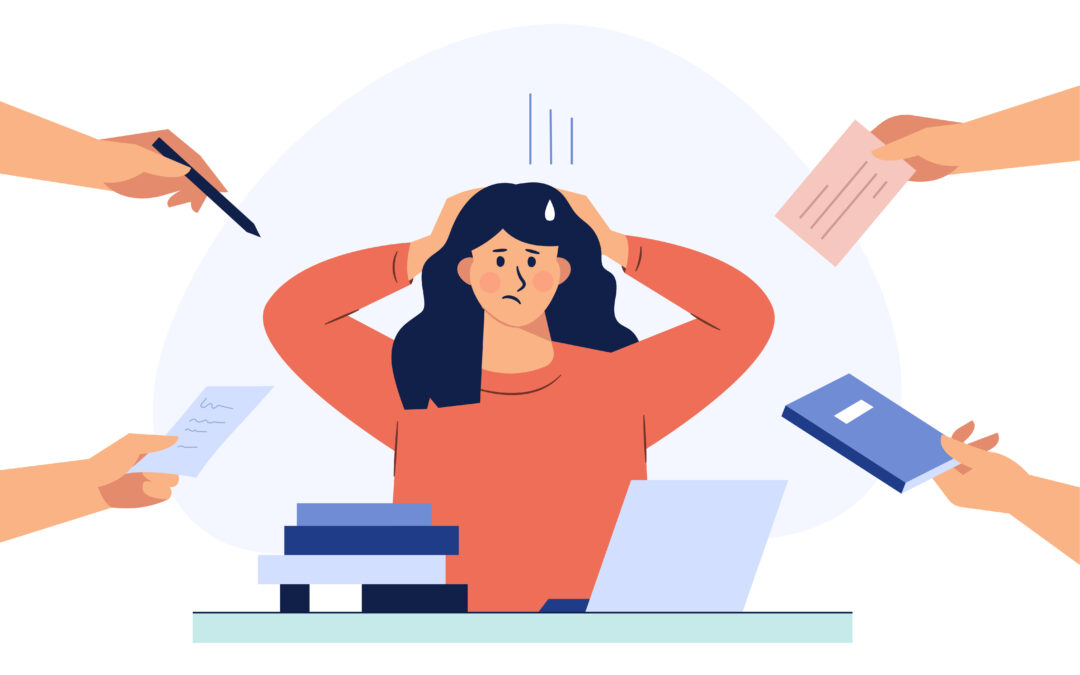Anxiety disorders are increasingly common in today’s fast-paced world.
The pressures of daily life, work, and relationships—not to mention an increasingly stressful news cycle—take a toll on even the sturdiest among us and make managing stress difficult. Everybody can benefit from effective stress and anxiety management techniques.
Mindfulness
Mindfulness is the practice of being fully present and accepting your thoughts and feelings without judgment. By focusing on the here and now, you can reduce anxiety about the future or regrets about the past. Science shows that engaging in mindfulness exercises, such as meditation and deep breathing, eases stress and cultivates a sense of calm.
Lifestyle
Maintaining a healthy lifestyle is a cornerstone of managing stress. Regular physical activity, a balanced diet, and sufficient sleep contribute to overall well-being and can act as buffers against anxiety. Exercise releases endorphins, the body’s natural stress relievers, which can help balance mental health and improve mood. Additionally, consuming nutritious foods and ensuring proper rest provide your body with the resources it needs to effectively cope with the tensions of everyday life.
Cognitive Behavioral Therapy (CBT)
Learning to challenge negative thoughts is essential to managing anxiety. Distorted thinking patterns and irrational fears are often at the core of anxiety disorders. Cognitive behavioral therapy (CBT) is a proven approach that helps individuals identify and challenge these thoughts, replacing them with more rational and constructive ones. CBT empowers people to develop coping skills and build resilience—making it easier to navigate anxious situations.
Relaxation Techniques
Progressive muscle relaxation, visualization, and yoga—among other relaxation techniques—promote a sense of ease and reduce the body’s stress response. By incorporating these practices into your daily routine, you can proactively manage anxiety and prevent it from escalating.
Social Support
Talking to friends, family, or support groups about your feelings and experiences can provide comfort and validation. Often, sharing your thoughts with others can bring new perspectives and coping strategies to light, helping to ease the burden.
When anxiety becomes overwhelming and begins affecting your daily life, it is crucial to seek professional help. Therapists or counselors can offer personalized guidance and treatment options tailored to your specific needs, and medical professionals can prescribe anti-anxiety medications that have a proven impact.
Despite these available resources, some individuals find that traditional treatments alone do not alleviate their stress and anxiety. In such cases, ketamine infusion therapy has emerged as a potential option. Ketamine is an anesthetic drug that has shown promise in rapidly relieving symptoms of depression, anxiety, and post-traumatic stress disorder (PTSD) in certain individuals. When administered in a controlled medical setting, this therapy has demonstrated effectiveness where other treatments have failed.
Managing stress and anxiety is vital for maintaining good mental health. Mindfulness, a healthy lifestyle, challenging negative thoughts, relaxation techniques, and social support are all valuable strategies. And yet, they are no replacement for professional help when it all becomes too much to bear. This may mean therapy, counseling, medication, or ketamine infusion therapy are options to consider.
Contact Vitalitas Denver
Learn more about managing anxiety to ensure it does not gain control of your life. Schedule a free consultation at Vitalitas Denver—a ketamine clinic staffed by a qualified and experienced full suite of dedicated medical professionals.


